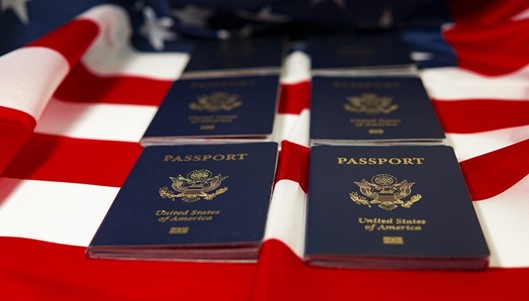Are you wondering, “What happens if they denied my citizenship application?” Well, you will be immensely relieved to know that there are quite a few things that you can do for a denied N-400 application for naturalization.
Having your citizenship application denied can be incredibly scary and overwhelming. With that said, the N-400 application form is fairly complicated and 21-pages long. Hence, denials are more common than one might hope. In fact, around 10% of all N-400 citizenship applications are denied each year. Common reasons for denial include:
- Not meeting the standards for good moral conduct, such as criminal history and failure to pay taxes.
- Failure to register for selective services.
- Not meeting the requirements for physical presence. Such as having resided in the US for five years without leaving for extended periods
- Not passing the civics or English exams
Things to Do When Your N-400 Gets Rejected
So, what are you supposed to do if your citizenship application gets denied by the US state? We, you have a few options to consider. Firstly, you can appeal the denial of your N-400 application for naturalization by using Form N-336. It will essentially allow you to request a hearing before an immigration officer on the denial of your N-400 form. Alternatively, you can file a new naturalization application. You can also file a Motion to Reopen. Lastly, you can file a Motion to Reconsider.
If you appeal the denial, you effectively get a second shot at getting US citizenship. It also helps you avoid the possibility of receiving a Notice to Appear in immigration court for your potential removal from the country.
What Does the N-400 Appeal Process Entail?
If you want to appeal the denial of your citizenship, you will have to hire a credible lawyer. They can fill the N-366 appeal form within 30 days from the time you receive the denial letter of your N-400 naturalization form. But, if the USCIS mailed the notice to you, you would have 33 days to file the appeal.
If an attorney or some other representative files the appeal for you, the law requires them to submit a G-28 form. It’s essentially a form that enables them to act or appear as your attorney or accredited representative. If the attorney fails to submit this form, they consider the appeal improper, which will result in its outright denial. You will also have to send the filing fee of $700 along with the N-366 appeal form.
Appeal Hearing
Once you or your lawyer have filed everything appropriately. You will have your hearing arranged within 180 days from the date you filed the appeal. During this appeal hearing, the court will allow you to bring forward any new evidence that might convince the judge to overturn the denial. This information can include written statements, briefs, or additional evidence, depending on the reason for the initial denial. Make sure to develop a good argument for your naturalization. Since the immigration officer who will hear your appeal will have a lot of discretion in how they re-determine your application in light of the new evidence.
When Should You Re-File for Naturalization Instead of Appealing the Denial?
So, when does it make more sense to re-file for naturalization instead of appealing the denial? One instance when re-filing makes more sense is if the denial was due to the lack of good moral character. Because of an arrest for a minor crime (as of the time of the appeal) that happened more than five years ago. For instance, if at the time of your initial application, you had committed a crime within five years of the application window. But at present, the five years have elapsed. You might have better luck re-filing for naturalization than appealing the denial.
It’s because the good moral character test looks at the last five years only. So, simply waiting during the time period can make the needed difference in your case. Alternatively, you can talk with your lawyer to see if you’re eligible for post-conviction relief. As that can help you meet the moral character requirement of the application. And enable you to re-apply before the designated time lapse.
Another instance in which re-filing is the better choice is if the denial is due to not meeting the continuous residency criteria. Permanent physical residence requirements demand that you be within the country for at least thirty months of the past five years from the point of your application. Part of this requirement is that you must have been residing in the US for at least five years at the time of your citizenship application.
If you have a green card through marriage, the law requires you to have been in the US for eighteen months out of the past three years. With at least three years of residency in the US before applying. In this instance, if waiting for a few months and re-applying will allow you to meet these requirements. Re-filing makes more sense than appealing the denial.
When Should You File a Motion to Reopen the Application for Naturalization
If you have somehow missed the deadline to appeal your naturalization case. Or if you have new evidence that you did not have at the time of the initial application. You will surely benefit from a Motion to Reopen. However, in such an instance, it’s up to the immigration officer to determine if the new evidence is sufficient to warrant a reversal of the citizenship denial.
When Should You File a Motion to Reconsider?
If you have missed the deadline to appeal your case and you believe that the immigration officer incorrectly applied the law when issuing your denial, you can surely file a Motion to Reconsider. This motion will help give you a second chance. Especially, if you believe that your officer was biased in their judgment.
If your N-400 naturalization application was denied for whatever reason. And you need to discuss your options, make sure to talk to a reliable immigration lawyer. This way, you can rest assured that your attorney will have your best interest in mind. And they will guide you toward the option that can help you become a legal citizen of the US without any unnecessary hassle.


